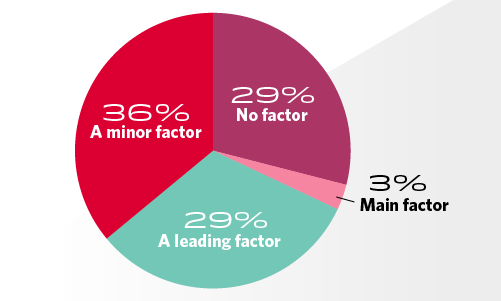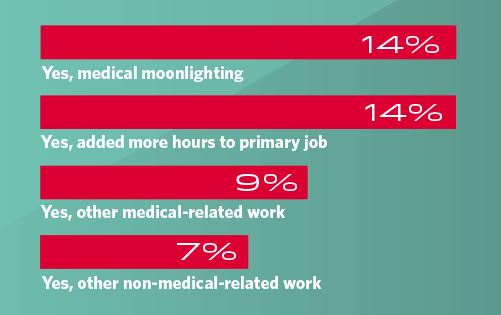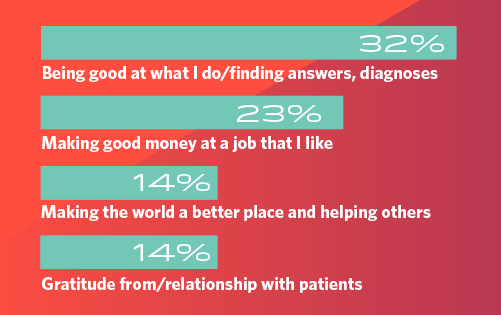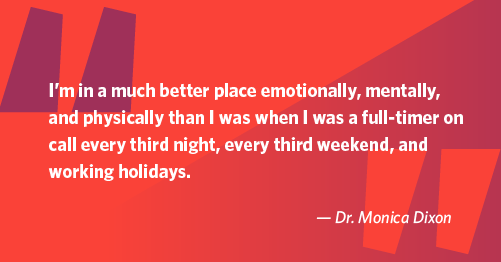The average anesthesiology salary was $472,000 in 2023, according to Medscape’s 2024 Anesthesiologist Compensation Report. This salary kept anesthesiologists as some of the top-paid specialists in the industry — the average salary for all physicians was $363,000 last year.
However, many anesthesiologists struggle with long hours; others are looking for ways to supplement their income with additional work. Here are some of the top insights from Medscape’s anesthesiology salary 2024 report.
Half of anesthesiologists are satisfied with their salary
Anesthesiologists are among the specialists who are most content with their pay, though a sizable group of 46% feel they should be paid more.

However, many anesthesiologists seemed more satisfied with their own pay than with physician pay overall. Two-thirds (66%) of anesthesiologists felt physicians were underpaid for their work, compared to only 2% of anesthesiologists who felt physicians were overpaid.
Outside of anesthesiologists, the physicians most content with their pay work in public health and preventative medicine, dermatology, and psychiatry. However, only dermatologists make more than anesthesiologists on average. Implicitly a high salary doesn’t always correlate with pay satisfaction.
Fill in the blanks: How does locum tenens compensation work?
One-third chose anesthesiology in part for its high salary
When surveyed, 65% of anesthesiologists said that pay was only a minor factor or not a factor at all in their decision to study anesthesiology. However, 32% stated that future compensation was a leading factor in their decision to pursue anesthesiology, and 3% stated it was the main factor in their choice of specialty.
Was future pay a factor in choosing anesthesiology as a specialty?

This rate is in contrast to 83% of physicians overall, who said that future remuneration was only a minor factor or not a factor in choosing their specialty.
Some anesthesiologists pursue locums to supplement their income
Medscape found that 38% of anesthesiologists take other work to supplement their primary income. While some work extra hours with their employers (14%), others have done medical moonlighting or locum tenens work (14%) at other facilities to supplement their salary. One in ten (9%) take on other medical-related work, while 7% pursue non-medical-related work.
Have anesthesiologists taken on supplemental work?

Those who’ve tried locum tenens enjoy the opportunity to make a difference. “You’re pretty welcomed, and if you’re a competent anesthesiologist, they’re more than happy to have you,” said Dr. Andrew Ward, an anesthesiologist who supplements his income with locum tenens work. “They’re thankful because they realize that if they can’t get an anesthesiologist, that surgeon doesn’t get his cases done.”
Dr. Ward has used locum tenens to increase compensation and explore the country. He has lounged on the beaches of Florida, explored the mountains of Montana, and worked just about everywhere in between. Dr. Ward emphasized that with this arrangement, he doesn’t work weekends, isn’t on call, and doesn’t have to work holidays.
Want to learn more? How locum tenens works for anesthesiologists
Anesthesiologists enjoy practicing their medical skills
Medscape also surveyed anesthesiologists on what they found to be the most rewarding aspect of their job. For one-third (32%) of anesthesiologists, being good at their jobs, including finding answers and diagnoses, was the most rewarding part.
And while 65% of anesthesiologists said that pay wasn’t a deciding factor in choosing their specialty, 23% said that making good money was the most rewarding part of the job.
For a smaller set of anesthesiologists, they cited making the world a better place (14%) and building relationships with patients (14%) as the most rewarding aspect of their work.
What is the most rewarding part of your job as an anesthesiologist?

Practice without the paperwork: The pros and cons of locum tenens
Long hours challenge many anesthesiologists
Anesthesiologists work long hours, and nearly one in three (29%) said this was the most challenging aspect of the job. In addition, rules and regulations bogged down 18% of anesthesiologists, and 13% said dealing with Medicare and other insurers was the most challenging aspect.
Dr. Monica Dixon is an anesthesiologist who works locum tenens fulltime. Like so many of her peers, she struggled with the long hours. When her medical group was acquired, she initially took a locum tenens job as a temporary solution, but now, like Dr. Ward, she gets to skip call work and can opt out of working holidays.
“I have to say emotionally, mentally, physically, where the job is concerned, I’m in a much better place than I was when I was a full-timer being on call every third night, every third weekend, working holidays,” said Dr. Dixon.

“I do work late if they want me to, but when I’m done, I’m done. I get all my holidays off to spend with my kids, and I don’t have to plan around it.” While she tried locum tenens work as a temporary fix, she now says, “I don’t think I’d ever go back.”
Consider taking your specialty on the road. Anesthesiologists are in high demand as locum tenens physicians. Give us a call at 954.343.3050 to learn more or view today’s locum tenens anesthesiology job opportunities.



